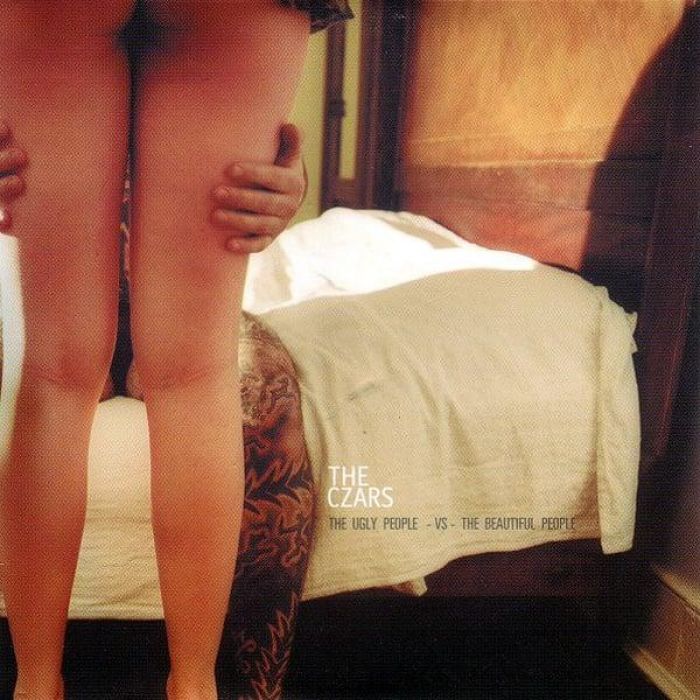The Ugly People Vs The Beautiful People by The Czars (Review)

Lately, I’ve found myself reaching for The Ugly People Vs The Beautiful People with increasing frequency. It’s one of those albums that tends to be a comforting thing, a support group of sorts. Be it at work after-hours, or sitting in my room late at night, this is an album meant for coaxing you through emotional duress. It’s easy to feel, given the wide (and often-battered) emotional terrain covered in these 12 songs, that at least one of them was written for you. And if it weren’t for the wide (and often-scattered) musical terrain covered in these 12 songs, that connection could be even stronger.
Since it draws from influences including country, classic ’50s pop, lounge, and psychedelia, listening to The Ugly People Vs The Beautiful People is definitely not boring. When the album hits its stride, this musical diversity actually increases the songs’ emotional impact. Just look no further than the album’s strongest moments: “Killjoy,” “Caterpillar,” and “Lullaby 6000.”
“Killjoy” begins with a Parisian accordion melody, like something crafted for Caro’s latest film. It then transforms into something resembling a surf-laced ballad if performed by The Denver Gentlemen, wistful vocal harmonies left intact. “Caterpillar” is a slow-burning piano-driven ballad, with guitar textures and trumpets swirling about like delicate tendrils of cigarette smoke. Vocalist John Grant is given center stage, where he croons “I don’t want to wait too long to tell you who I am/I don’t want to be so far back that you can’t see me/Don’t you want to be there as we find out who we are?” within an inch of his life.
As beautiful as those tracks may be, “Lullaby 6000” delivers the album’s most arresting moment; Mark Kozelek is probably kicking himself for not having written it first. Again, Grant’s voice provides the song’s focal point, literally gliding over the hazy, delicate guitars. In the final moments, Paula Frazer (Tarnation) joins in, her harmonies joining with the sparse instrumentation to provide the intimacy that Grant’s words (“For tonight, come to me/Lay down beside me and close your eyes/Kiss me asleep”) ache for so desperately.
Of course, they follow it with the driving, bass-heavy “This,” during which Grant’s voice adopts something that only be described as “faux-Danzig” — which kind of ruins the mood. There’s no reason that Grant’s voice needs to become overwrought for it to have an effect. Even though Grant’s voice doesn’t necessarily make or break the album, it’s certainly one of the album’s selling points. It’s just a shame that they chose to screw with it on the vocoder-ized “What Used To Be A Human.”
But those rare grievances aside, this album is a lush recording that grows on you quite comfortably. There’s the eerie “Autumn,” in which distant guitar drones echo the coming winter winds. “Anger” is another piano-driven ballad that almost devolves into radio-friendly sap (in a group intervention sort of way), with lyrics like “Honestly, noone seems to hurt you like you do/Tell me please, how does anyone take so much abuse?” But wouldn’t you know it, they manage to pull it off with the hearts on their sleeves left intact. Let’s not forget the opening song, “Drugs,” a caustic ballad that reveals a relationship for the abusive addiction that it is.
This could very well be a near-perfect album, if it weren’t for “This” and “What Used To Be A Human.” But those tracks easily become afterthoughts — even that silly vocoder seems irrelevant in the light of something like “Lullaby 6000.” And thank God for that, because I’ve certainly needed something, even a silly CD, to help me through some days. When you find yourself hunched over your desk at work and holding your head in your hands, your eyes getting a little moist because a song just hit you there… well, that’s what it’s really all about, isn’t it?